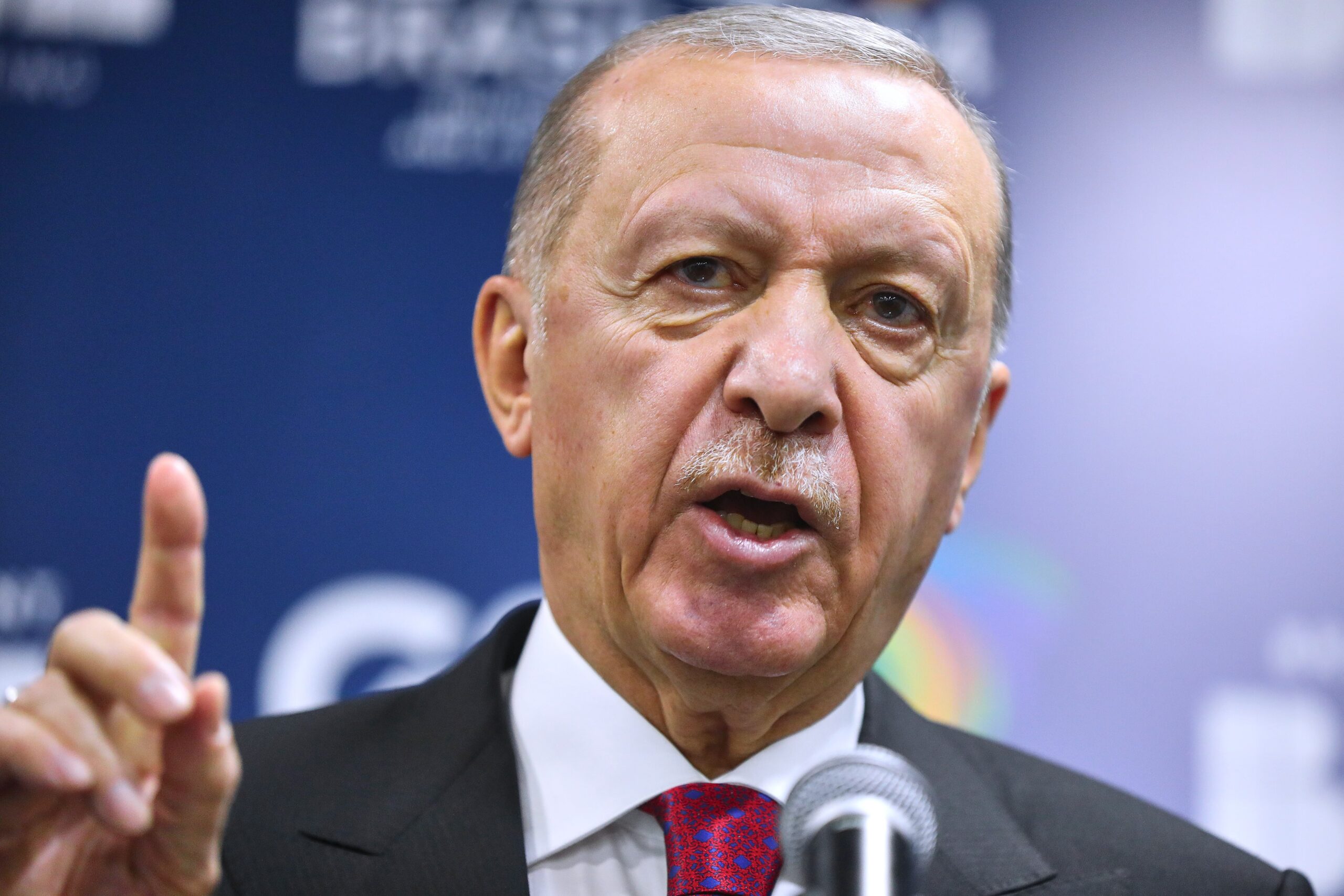The Mediterranean has always been a theater of rivalries, shifting alliances, and calculated gambles, and Turkey has once again thrown its dice. Ankara’s announcement of a potential Exclusive Economic Zone (EEZ) agreement with Syria’s new government mirrors Turkey’s 2019 maritime pact with Libya’s Government of National Accord (GNA). That earlier agreement allowed Turkey to claim a foothold in the Eastern Mediterranean, reshaping regional dynamics to its advantage. Today, Ankara is pursuing a similar strategy in Syria, seeking to create facts on water as it did on land, using the promise of economic and political support to position itself as a dominant player in the country. These parallel maneuvers underscore Ankara’s broader vision of Libya and Syria as interconnected pillars of its geopolitical strategy in the Mediterranean, where actions in one arena bolster influence in the other.
Central to this strategy is Turkey’s proclivity to leverage military interventions, political agreements, and economic tools to advance its objectives. In Libya, Turkey’s 2019 intervention secured it a critical foothold through the deployment of drones, Syrian mercenaries, and direct military support. This allowed Ankara to negotiate an EEZ agreement that, from its vantage point, redefined maritime boundaries and challenged the claims of Greece, Cyprus, Egypt, and Israel. The agreement was not merely an economic gambit; it was a strategic move to confront Mediterranean rivals over territorial waters and energy resources. Five years later, Ankara is seeking to establish an EEZ agreement with Syria’s new government that would extend its maritime claims further into the Eastern Mediterranean. While Turkey frames these actions as legitimate assertions of its rights, regional powers are likely to view them as provocations that deepen tensions in an already volatile environment.
Balancing Russia in Libya
Libya occupies a central role in Turkey’s Mediterranean strategy, serving as a gateway for Ankara’s regional ambitions and a platform for projecting influence. The 2019 Memorandum of Understanding with the GNA, which established a long-contested maritime boundary, has been criticized for raising unresolved sovereignty issues and its questionable legality under international law. Beyond these legal challenges, Turkey’s position in Libya is further complicated by Russia’s entrenched involvement. Through the Wagner Group—recently rebranded as the Africa Corps—Moscow has bolstered Libyan National Army Commander Khalifa Haftar’s forces, securing itself its own foothold in Haftar’s areas of control. Reports of Russian arms transfers over Turkish-controlled airspace from Syria’s Hmeimim airbase to eastern Libya after the fall of Damascus exemplify the paradoxical nature of the Turkey-Russia rivalry. On the surface, such developments may appear transactional, but they reflect Ankara’s broader strategy: maintaining escalation dominance by setting boundaries on Russian operations while leveraging its role as a regional balancer to extract strategic advantages.
SIGN UP FOR THIS WEEK IN THE MIDEAST NEWSLETTER
This balancing act underscores Turkey’s calculated pragmatism in Libya, where collaboration with Russia acts as both a counterweight to regional adversaries and a measured gamble. By permitting Moscow’s logistical transfers, Ankara has transformed a potential liability into a tool of strategic leverage, subtly positioning itself to influence Russian ambitions in Africa while reaffirming its indispensability to NATO and fortifying its regional clout. However, this strategy is not without vulnerabilities. The delicate balancing required to manage Moscow’s activities leaves Ankara exposed to the risks of miscalculation, overreach, and dependency. Disruptions in its arrangement with Russia—or fractures in its relationships with NATO allies, regional powers, or Libyan factions—could unravel Ankara’s hard-won gains, imperiling its broader Mediterranean ambitions and leaving its geopolitical foothold exposed.
Flexing muscle in Syria
In Syria, Turkey’s intervention was initially driven by the need to address immediate security threats, primarily removing the self-proclaimed Islamic State and containing Kurdish forces seeking to expand territorial control in northern Syria. However, with the fall of dictator Bashar al-Assad, Ankara recalibrated its approach, merging economic and geopolitical ambitions with its security objectives. The prospect of an EEZ agreement with Syria mirrors the dynamics of the 2019 Libya pact. While such a pact could offer maritime gains and deepen Turkey’s influence in the region, it is fraught with risks. Greece, Cyprus, and other European powers are likely to view such an agreement as an illegal and destabilizing move, further polarizing regional dynamics and intensifying disputes over energy and sovereignty.
Turkey’s approach in Syria also reflects its broader ambitions to integrate its strategies across theaters, enhancing its influence through interconnected policies. The country’s pursuit of maritime gains in Syria builds on the successes of its Libya agreement while highlighting the risks inherent in replicating this strategy in a different geopolitical context. The overlapping tensions in Libya and Syria demand constant recalibration, as Ankara navigates volatile rivalries and shifting alliances. The integration of its strategies underscores Turkey’s vision of the Mediterranean as a unified arena for projecting power.
However, significant challenges loom in Syria, the most salient of which stem from Israel. Following the collapse of the Assad regime, Israeli airstrikes have escalated, targeting countless military installations and destroying aircraft, radar systems, and missile sites. Simultaneously, Israeli forces have conducted incursions and expanded their presence beyond the occupied Golan Heights, particularly in the Quneitra province of southern Syria. These actions reflect dissatisfaction with Syria’s current trajectory. There is a widespread perception within Israel that Syria risks becoming a Turkish protectorate, a scenario that would severely constrain Israel’s military latitude in the region. This concern is compounded by the belief that Iran will continue to maneuver for influence, viewing Syria’s strategic assets as too valuable to relinquish. In this context, a Syria rebuilt under the leadership of Arab states is seen as a far more desirable outcome, curbing the influence of both Turkey and Iran while pre-emptively neutralizing their resurgence.
Should this vision prove unattainable, Israel may resort to curbing Turkish influence by undermining Syria’s unity, channeling support to ethnic and religious minorities to fragment the country and weaken Ankara’s position. This could set the stage for a potential collision course between the two. The interplay of this rivalry highlights the fragile nature of Ankara’s ambitions, with Israel emerging as perhaps its most formidable challenge. Tel Aviv’s ability to operate beyond traditional international norms, as starkly demonstrated in Gaza, and to secure the unwavering support of Ankara’s traditional Western allies—regardless of its methods—exposes the looming asymmetry Turkey faces in this geopolitical contest.
Strengthening influence in the Mediterranean
Anticipating the challenges to its broader Mediterranean aspirations, Turkey is building synergies between its strategies in Libya and Syria to maximize its leverage, reflecting its broader ambition to reshape the Mediterranean’s geopolitical map and strengthen its negotiating position. In Libya, Ankara has adapted to the shifting political landscape, engaging with Eastern Libyan factions and the Haftar family to expand its influence. This outreach signals a pragmatic shift from confrontation to cautious diplomacy, as Turkey seeks to transform former adversaries into cooperative stakeholders while navigating the crowded Libyan geopolitical arena. In Syria, Turkey’s political influence has positioned it as a linchpin for regional engagement with the Syrian government, mediating between Damascus and key external actors, including Arab states, European Union countries, and potentially Russia. Ankara’s subtle gatekeeper role sharpens its leverage, turning regional rivalries into stepping stones for its own ascent.
By aligning its strategies in Libya and Syria, Turkey seeks to consolidate influence and amplify its leverage across both theaters. This calculated approach underscores Ankara’s effort to position itself as an indispensable actor in the Mediterranean, translating tactical maneuvers into broader geopolitical gains while pre-empting challenges that threaten its ambitions. Yet, this high-stakes strategy leaves Turkey exposed. The overlapping tensions in Libya and Syria demand constant recalibration, as advances in one arena could rapidly unravel in another.
The return of US President-elect Donald Trump to the White House this month looms as perhaps the most significant determinant shaping the region’s dynamics. Trump’s transactional approach to foreign policy could offer Ankara opportunities to assert itself more aggressively, particularly as it leverages its strategic position in the Mediterranean. However, this same approach raises the specter of greater US disengagement from regional conflicts, leaving Turkey to face escalating challenges from Moscow, Israel, and other regional powers without the backing of its traditional Western allies. The uncertainty of this geopolitical environment underscores the precariousness of Turkey’s gains, where advances in one theater could rapidly unravel in another, placing its broader Mediterranean strategy on a knife’s edge.
Ultimately, Turkey’s Mediterranean strategy reflects both ambition and vulnerability, a delicate dance on shifting sands where every advance risks triggering a cascade of challenges. Much like Ankara views Libya and Syria as interconnected theaters, Western actors should embrace this moment of change to recalibrate their bilateral relations with Turkey, recognizing shared interests in maritime stability and regional development.
In Libya, this means supporting a political process that moderates a Turko-Russian oligopolistic arrangement while promoting stability and inclusivity to align with shared Turko-Western priorities. In Syria, targeted sanctions relief and reconstruction efforts tied to an inclusive political framework can support stabilization efforts and address immediate needs. By anchoring their engagement with Turkey in mutual interests and shared goals, Western actors can transform competition into cooperation. This recalibration will be pivotal in shaping whether Turkey’s Mediterranean gambit becomes a cornerstone of regional stability or a foundation of enduring fragility.
Emadeddin Badi is a nonresident senior fellow with the Middle East Programs at the .
Abdullah al-Jabassini is an adjunct professor at the Johns Hopkins University, School of Advanced International Studies (SAIS) Europe.
Image: Rio de Janeiro, Brasilien, 19.11.2024: Museu de Arte Moderna do Rio de Janeiro: G20-Gipfel: Recep Tayyip Erdogan, Praesident der Tuerkei, gibt eine PressekonferenzNo Use Sweden. No Use Germany.








